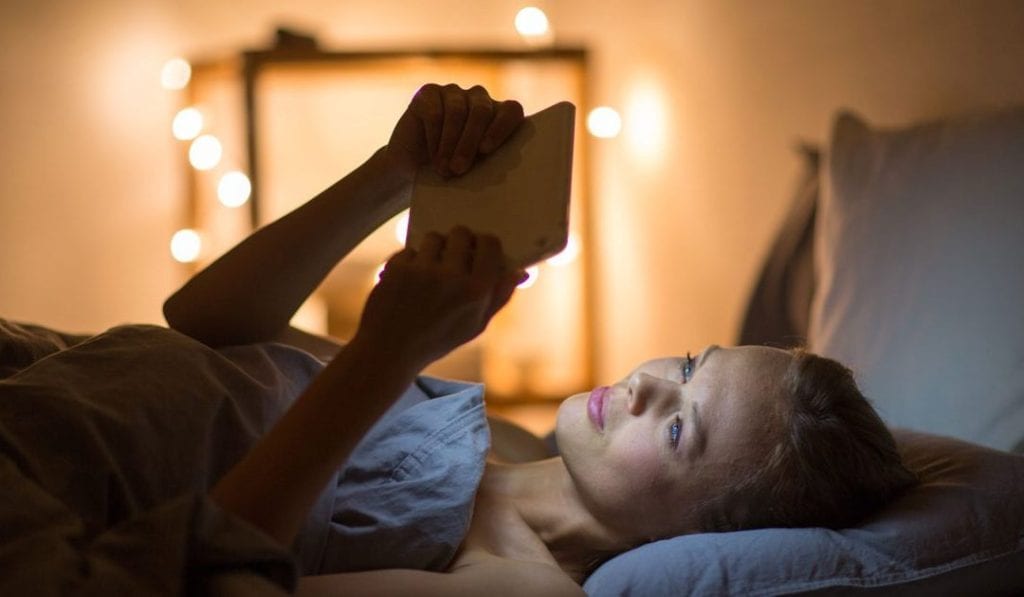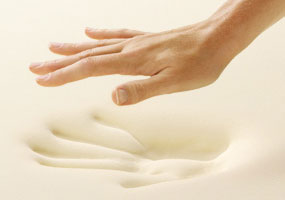
An Analysis of Responses to the Survey: Screen vs. No Screen
Using results as of 11/30/2017
Part 1: Survey Responses
Throughout 2017, MemoryFoamMattress.org (MFM) has been conducting an online survey on the use of electronic devices before going to bed. It is an anonymous survey, hosted and powered by Survey Monkey. This means that we do not know who participated in the survey. We only know how each anonymous participant has answered the questions. So far 31 people have participated.
The Screen vs. No Screen Survey
The Screen vs. No Screen survey has just four questions:
- What kind of electronics do you use before bed?
- How much time do you use a screen device before bed?
- How long before bed do you stop using your screen device?
- How well do you sleep on nights that you use screen devices?
30 people answered Q1 and Q3 – 29 answered Q2 – and all 31 answered Q4.
The Objective
The objective of this analysis is to answer three questions:
- Which electronic screen devices are most used within two hours of bedtime?
- How long are they used, and how close to bedtime?
- How does this usage affect the quality of sleep?
The first question on the survey is the most objective of the four. Unless the participants have accurately logged their usage of screen devices, the middle two questions are estimates of varying reliability. The last question is mostly subjective, and may be influenced by other variables.
The Response
The sample (31) is rather small for a survey. However, three of the questions have one answer which is notably dominant.
Question 1: two-thirds of the respondents use a smart phone. This is even more notable since more than one device can be selected. With this small sample, whole-number percentages are given.
Question 2: has the most nearly even distribution of responses. 38% estimated using their devices for 20 minutes or less before going to bed, 24% said approximately 1 hour, and 28% approximately 2 hours. Two persons (7%) claimed, “I don’t use a screen device before bed.” With only 29 persons answering this question, one response is 4%, the margin between two of the answers.
Question 3: more than three-fourths said they stopped using the device 20 minutes or less before bedtime. And on Question 4, over 61% said their sleep was average on the nights they used the screen devices.
Question 4:, the most subjective query, is the only one that none of the participants skipped, including the one who skipped all of the previous three questions. Nineteen respondents (61%) out of 31 rated their sleep experience on the nights they used screen devices as Average. Three users (10%) rated it as Poor, and 4 (13%) each as Above Average and as Below Average.
Most Used Electronic Screen Devices
By far, the electronic screen device most used before bedtime is the smart phone. 67% of respondents checked Smart Phone. Seven of these also checked other devices – including TV for five of the Smart Phone respondents, Computer for four, and Tablet for two. One respondent with two selections did not use a smart phone, but checked Tablet and TV. One user checked all four devices.
Multiple choices pad the percentages of the other devices: TV 33%, Computer 23%, Tablet 20%.
Two respondents said they didn’t use an electronic screen device before bedtime. Apparently this means much more than two hours before, since they had to use an internet connecting device (tablet, smart phone, or computer) to take the survey. On the other hand, their device may not have been on the list. It could have been an e-book reader (such as Kindle). One respondent skipped this question and answered only the one on how well they slept (Average).
The answer to this question shows how widely used smart phones now are. They are largely replacing cell phones that are not smart phones, since the older types are becoming less available, and they compete with tablets as replacements for desktop and laptop/notebook computers.
Screen Devices and Sleep Quality
There is in this survey some evidence that using electronic screen devices shortly before going to bed has a negative effect on the quality of sleep. Some of this is seen in correlating what and how many of these devices are used to their perceived sleep experience. Although the perception of sleep quality is subjective, these results hint at the results of scientific sleep studies. Here is where a much larger sample, at least over 200, would make the picture clearer.
Device and Sleep Experience Responses
| Question 4: Sleep Experience Responses | Question 2: Screen Devices Used | |||||||
| Quality of Sleep | Tablet | Smart Phone | TV | Computer | None | No Response | ||
| 1 | Above Average | 4 | 1 | 2 | 2 | 1 | 0 | 0 |
| 2 | Average | 19 | 5 | 10 | 5 | 1 | 1 | 1 |
| 3 | Below Average | 4 | 0 | 4 | 2 | 1 | 0 | 0 |
| 4 | Poor | 3 | 1 | 4 | 1 | 2 | 0 | 0 |
| nr | no response | 0 | 0 | 0 | 0 | 0 | 0 | 0 |
Nineteen respondents (61%) said that how well they slept after using electronic screen devices was Average. Not surprisingly, over half of these (10, 32% of all users) use smartphones. Of the seven participants using multiple devices, only three report having average sleep, 2 reported Below Average (including one who uses 3 devices), 2 (including the one who used all four) Poor, and 1 (the other one who uses 3 devices) Above Average.
Correlating Device Use and Sleep Quality
The apparent implication of these results is that, with some exceptions, the more devices one uses before bedtime, the less well one sleeps. Let’s consider why:
For one thing, using multiple devices increases the likelihood of going beyond the usual bedtime. If the person takes 20 minutes or more getting ready for bed, on that night this makes them even later getting to bed, and it will affect their sleep even though device use ceased more than 20 minutes before.
The Sleep Issues article: A Time to Sleep, Part 1, says…
Be regular
Our bodies, as well as those of animals, have circadian rhythms that control daily cycles of activity. This includes when we sleep and when we are awake.
Disrupting our regular bedtime repeatedly does have a negative effect on our quality of sleep. The reason is that it interferes with our circadian rhythm. Numerous studies have borne this out, such as reported on WebMD, the US National Library of Medicine, National Institutes of Health, and the HeartMD Institute.
Device Usage Time and Sleep Quality
Even if using screen devices later does not delay going to bed, using them closer to bedtime has its own disadvantage. “A Time to Sleep – Part 1” also says this:
Get ready for sleep
This is not the same as getting ready for bed, although that is a part of this. Wind down your activities about an hour before bedtime. This works best if certain activities – for instance, listening to soft music or light reading – are scheduled for this time. As a ritual, it tells your body it’s time to sleep.
This is one aspect in which a much larger sample would provide greater clarification, especially considering the subjectivity of the last question. However, there are a couple of indicators that the duration of pre-bedtime screen use and time of quitting may impact the sleep experience.
Correlating Responses to Time of Use and Sleep Quality
| Sleep Experience Responses | Number of responses to usage time questions | |||||||||||
Question 4: Quality of Sleep | Question 2: Duration of Use | Question 3: Time of Cessation | ||||||||||
| 1 | 2 | 3 | 4 | nr | 1 | 2 | 3 | 4 | nr | |||
| 1 | Above Average | 4 | 1 | 1 | 2 | 0 | 0 | 4 | 0 | 0 | 0 | 0 |
| 2 | Average | 19 | 9 | 3 | 4 | 2 | 1 | 14 | 2 | 2 | 0 | 1 |
| 3 | Below Average | 4 | 1 | 2 | 1 | 0 | 0 | 3 | 1 | 0 | 0 | 0 |
| 4 | Poor | 3 | 0 | 1 | 1 | 0 | 1 | 2 | 1 | 0 | 0 | 0 |
| nr | no response | 0 | 0 | 0 | 0 | 0 | 0 | 0 | 0 | 0 | 0 | 0 |
| Key to Responses: | 1 | 2 | 3 | 4 | nr | |||||||
| ≤20 Min. | ≈ 1 Hour | ≈ 2 Hour | Don’t use | 0 Resp. | ||||||||
Rating their sleep experience after using screen devices, 61% (19) of the participants responded that it was Average. Of these, one did not respond to the questions about the duration of use before going to bed or how long before bedtime they quit its use. Nine of these (47%) said they used the device(s) for 20 minutes or less, and 14 (74%) said they quit 20 minutes or less before bedtime. Three said they used it for about one hour, and four for about two hours. Two each said they quit 1 hour and 2 hours before going to bed.
Four participants (13%) rated their sleep experience as Above Average. All four of these claimed to have quit using their device(s) 20 minutes or less before going to bed. Their length of usage is spread out almost evenly: 1 ≤20 minutes, 1 about 1 hour, and 2 about 2 hours.
Four of the participants (13%) rated their sleep experience after screen usage as Below Average. Half of these said they used them about 1 hour, while the other two were divided between ≤20 minutes and 1 hour. Three said they quit ≤20 minutes before bedtime, and one said about 1 hour.
Of the three who rated their sleep experience as Poor, one each claimed to have used their screen devices 1 hour and 2 hours before going to bed, and the other one skipped that question. Two quit ≤20 minutes before, and one approximately 1 hour.

